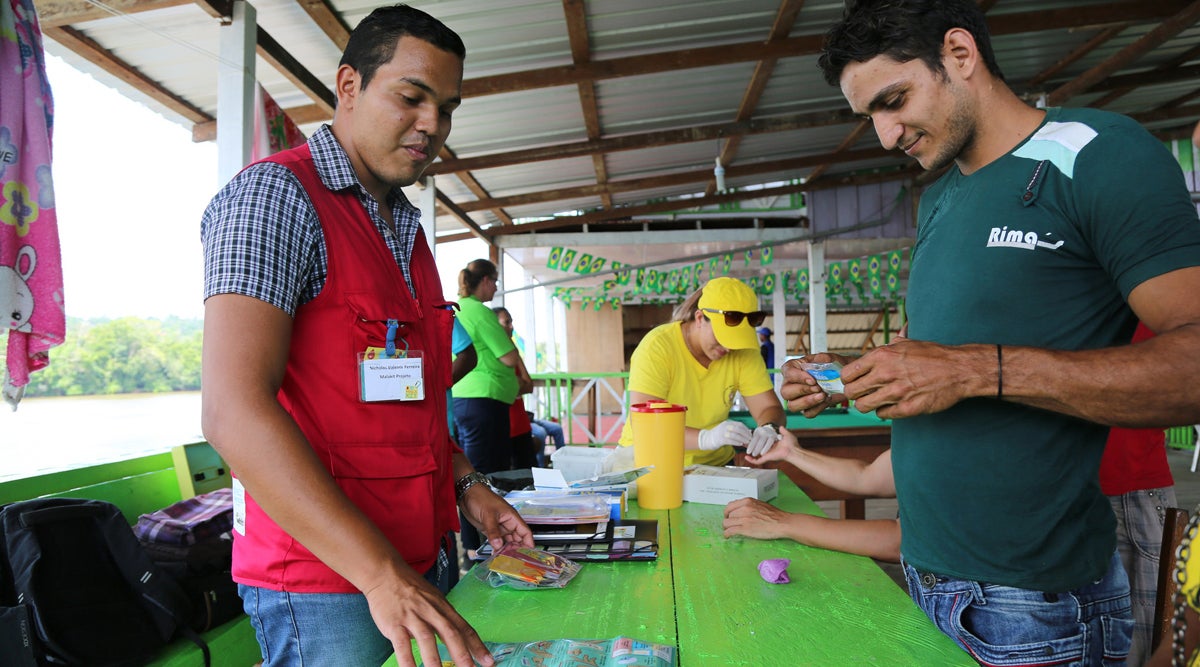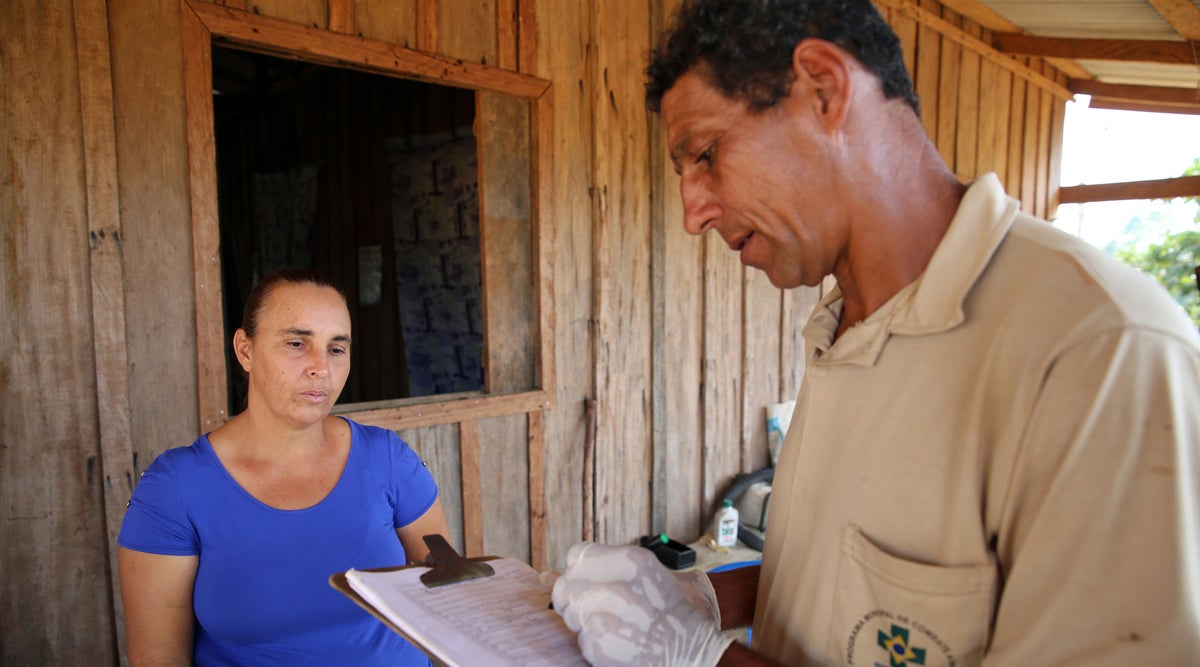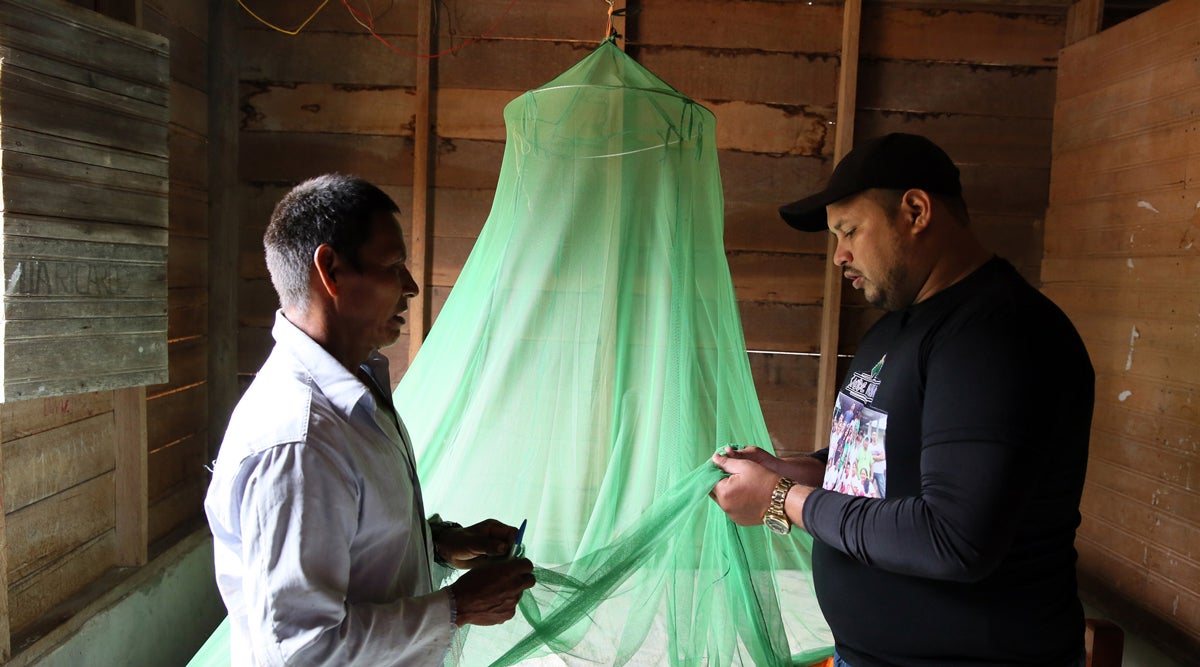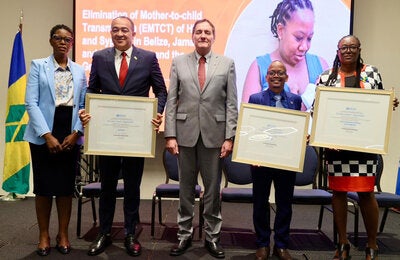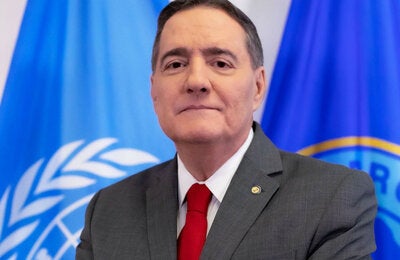Washington, D.C., 6 November 2018 (PAHO / WHO) — Malaria control programs in Brazil, Paraguay and Suriname have received the Malaria Champions of the Americas award, given out each year by the Pan American Health Organization (PAHO) and its partners to initiatives that contribute to eliminating the disease in the region.
The winners, who were honored at a Malaria Day in the Americas event, which took place today, are as follows:
- Suriname’s Malaria program, for introducing a solid, people-centered approach model to health, particularly focused on migrant miners and indigenous communities. The initiative has created local capacities and has led to improvements in diagnosis, treatment and vector control. It has also integrated health services and has sought innovative operational and technological solutions. Find out more about the Stop Malaria Program in Suriname
- The Machadinho D’Oeste Municipal Malaria Control program, also in Brazil, that implemented a series of strategies that led to greater access to diagnosis and treatment, the use of mosquito nets and a 44% reduction in cases of malaria between 2016 and 2017. Find out more about the Machadinho D'oeste Malaria elimination program
- The Alto Río Solimões malaria program in Brazil, for its efforts to control malaria in indigenous areas. This local program managed to reduce cases of the disease by 70% since 2015 in a hard-to-access area, where 70,000 people live in 13 villages along the banks of the river. Find out more about Alto Rio Solimões Malaria Control in Indigenous Areas in the Amazon
- The National Malaria Control Program in Paraguay, which has provided universal access to malaria diagnosis and treatment. The work of the program has ensured that the country has not registered any autochthonous cases of malaria since 2011. In June 2018, Paraguay became the first country in the Region of the Americas in 45 years to obtain official WHO certification for having eliminated malaria.
“These experiences reaffirm our conviction that eliminating malaria is an achievable goal,” said Dr Isabella Danel, Deputy Director of PAHO. Danel urged partners “to continue working together to face challenges, close the gaps and find solutions that will lead to the elimination of malaria.”
Malaria, transmitted by mosquitoes, remains endemic in 20 countries of the Americas with most of the cases concentrated in the Amazon subregion. Argentina is in the process of certifying elimination, and according to WHO, six other countries (Belize, Costa Rica, Ecuador, El Salvador, Mexico and Suriname) reduced the incidence of autochthonous cases and have the potential to eliminate the disease by 2020. More than 120 million people are at risk of contracting the disease in the Region.
Dr Rick Steketee, Deputy US Global Malaria Coordinator, emphasized that “the Region’s continued investment and commitment to fighting malaria is paying off – we have the data, the capacity to use it to target proven interventions to those most affected, and the political will and commitment to eliminate” the disease. “The Malaria Champions of the Americas embody this dedication, and their successes will not only help their countries advance towards elimination, but also provide us with an opportunity to learn how these countries are working across all levels to achieve elimination so we can apply it across the globe”.
This year is the 10th anniversary of the Malaria Champions Award, which was created in 2008. Since then, it has recognized 27 best malaria practices from 13 countries in the Region that have made a positive difference in the lives of the population.
Partners of this award include the United Nations Foundation, the George Washington University’s Milken Institute School of Public Health, John Hopkins University’s Bloomberg School of Public Health’s Center for Communication Programs, the Stempel School of Public Health and Social Work’s Global Health Consortium, the International University of Florida and, from this year, the American Society of Tropical Medicine and Hygiene.
Links
— Malaria Champions
— Malaria
— PAHO urges countries of the Americas to rid the continent of malaria
Pictures
— Machadinho D'oeste
— Alto Rio Solimões
— Suriname

